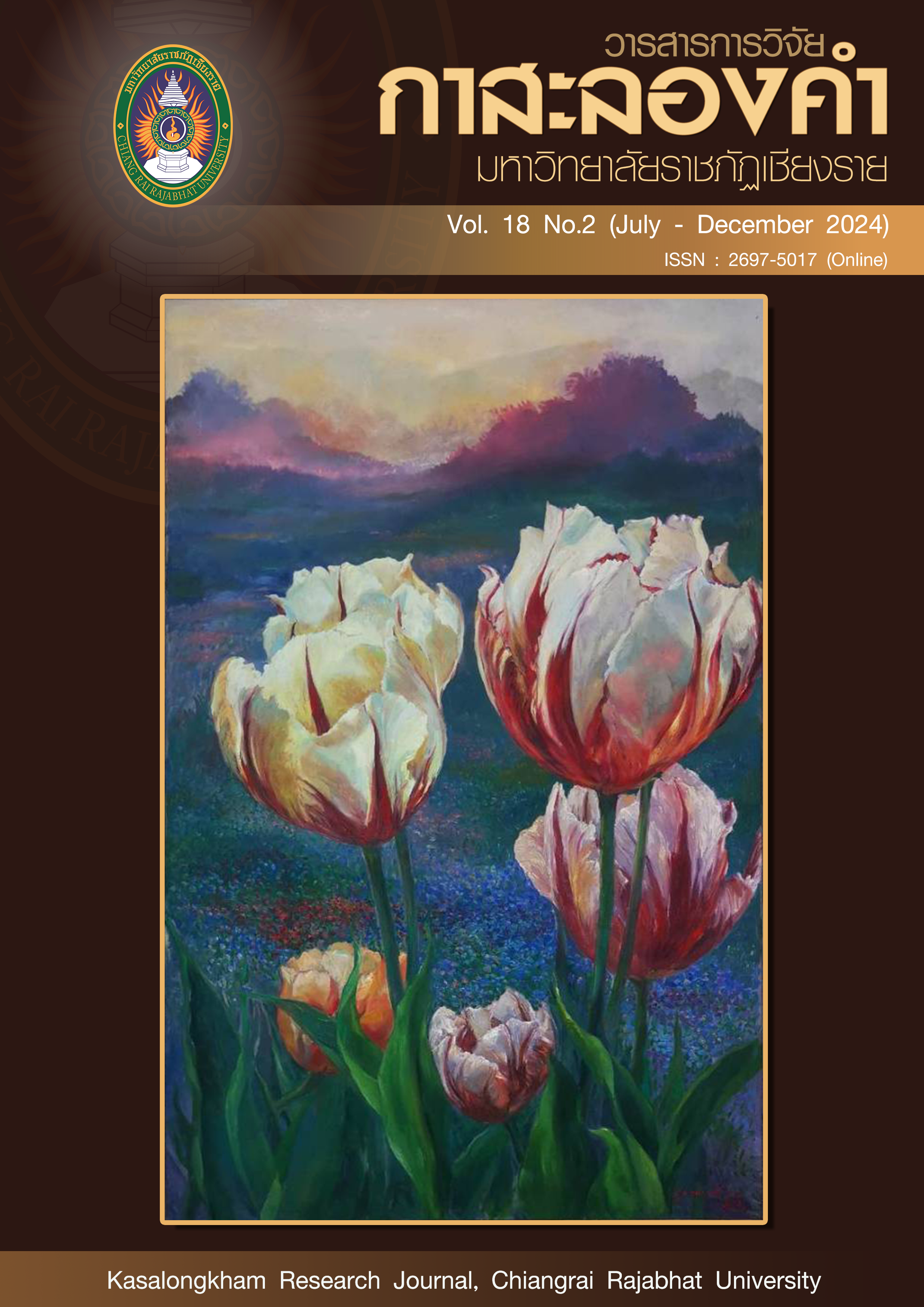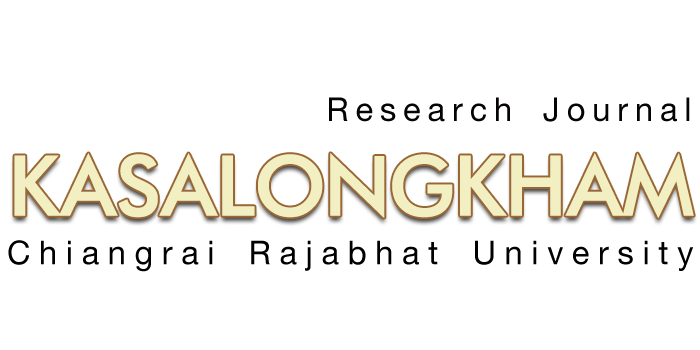The Curriculum Evaluation for the Bachelor of Education Program in Educational Technology and Communications (Revised Curriculum 2019), Faculty of Education, Nakhon Ratchasima Rajabhat University
Keywords:
Curriculum Evaluation, Educational Technology and Communications, CIPP modelAbstract
This study aimed to evaluate the curriculum of the Bachelor of Education Program in Educational Technology and Communications (Revised Curriculum 2019), Faculty of Education, Nakhon Ratchasima Rajabhat University, applying the CIPP model by survey research. This study covers four aspects: context, input, process, and product. The sample group consisted of stakeholders, such as 5 curriculum administrators, 18 lecturers, 68 current students, 14 graduates, and 11 graduate employers, for a total of 116 persons. The research tool was a stakeholder survey form. Data analysis used frequency, percentage, mean, standard deviation, and content analysis.
The study found that overall, the curriculum had a high level of suitability ( x̅=4.35, S.D.=0.63) and could be divided into aspects as follows:
1.The context evaluation showed a high level of suitability ( x̅=4.36, S.D.=0.65). The curriculum’s goal is aligned with social needs. The curriculum structure is appropriate, with the subjects being suitable for the goal and the content being interesting and updated.
2.The input evaluation showed a high level of suitability ( x̅=4.26, S.D.=0.70). The teachers had sufficient qualifications and proficiency in the content of each subject, the learning management was appropriate, the students had a good attitude towards the teachers, the students had sufficient responsibility toward themselves and society, and there was a proper teacher professional experience training system.
3.The process evaluation showed a high level of suitability ( x̅=4.31, S.D.=0.56). The curriculum had appropriate management, the teaching process was consistent with the objectives, and there were diverse assessment methods.
4.The product evaluation showed a high level of suitability ( x̅=4.45, S.D.=0.59). The graduates were ready in terms of maturity, able to control the classes, had aptitude in solving problems, and had distinguished numerical analysis, communication, and technology application skills.
References
Announcement of the higher education standards committee on the criteria for bachelor’s degree curriculum standards, B.E. 2022. (2022, 9 September). Royal Gazette. Volume 139 Special Section 212 Ng, 11-20.
Chantarotron, N., & Yatiakaravong, P. (2022). Curriculum and instruction development. Mahachula Academic Journal, 9(1), 336-347.
Homfung, C., & Makjui, A. (2023). An evaluation of Bachelor of Education program in Thai (4 years curriculum) (Revised curriculum academic year 2019) Faculty of Education, Silpakorn University. Silpakorn Educational Research Journal, 15(2), 274-288.
Onkasem, P., Koolnapadol, A., Sirathatnararojana, T., Potjana-areewong, J., & Hunsaen. S. (2023). A curriculum evaluation for graduate diploma program in teaching profession (Revised curriculum, B.E. 2562) Faculty of Education, Rajabhat Rajanagarindra University. Journal of MCU Nakhondhat, 10(11), 222-230.
Plangsorn, B., Sinthaworn, W., Chantana, S., Nithichaiyo, S., Ploysri, K., Pianjud, D., Charungchi, K., Tantarawongsa, C., & Thumsuwan, S. (2019). A study of lecturers responsible for the program, students, and lecturers in Bachelor of Education program in Educational Technology and Computer Teaching (B.E. 2559), Faculty of Education Rajabhat Rajanagarindra University. Journal of Educational Technology and Communications, Facutyl of Education Mahasarakham University, 2(4), 9-18.
Ruckbumrung, T., Lalognum, N., Iamboonyarit, P., & Puripanik, C. (2022). An evaluation of the Doctor of Philosophy program in Educational Technology, Revised A.D. 2016. HRD Journal, 13(2), 8-20.
Sithsungnoen, C., Vanichwatanavorachai, S., Songserm, U., Sapueksri, S., Boonsom, N., & Kaveerat, K. (2023). The curriculum evaluation on Master of Education program in Curriculum and Instruction, Faculty of Education, Silpakorn University. Journal of Education, Silpakorn University, 21(2), 107-121.
Soraphum. T., Sarnok, K., Limsripraphan, T., Kongtong, P., & Yueayai, R. (2023). A curriculum evaluation on Bachelor of Education program in Educational Technology and Computer (Revised Curriculum 2019) Vongchavalitkul University. Journal of Education Rajabhat Maha Sarakham University, 20(2), 213-224.
Srisa-at, B. (2017). Basic research (10th ed.). Suviriyasan.
Stufflebeam, D. L., & Coryn, C. L. S. (2014). Evaluation: theory, models and applications (2nd ed.). Jossey Bass.
Suparp, S. (2023). Curriculum evaluation models in the 21st Century stemmed from the CIPP model. Journal of Education Burapha University, 33(1), 1-14.
Vimolsilp, U., & Photipussa, P. (2023). The curriculum analysis and evaluation of Bachelor of Arts in Educational Communications and Technology program (The revised curriculum 2017) Faculty of Education in Ramkhamhaeng University. Udon Thani Rajabhat University Academic Journal, 11(1), 85-99.
Wannaprapha, T., Lalognum, N., Panich, W., Ruckbumrung, T., & Somkid, N. (2022). An evaluation of the Master of Education program in Educational Technology (Revised A.D. 2016) Faculty of Education, Burapha University. Journal of Faculty of Education Pibulsongkram Rajabhat University, 9(1), 112-124.

Downloads
Published
How to Cite
Issue
Section
License
Copyright (c) 2024 KASALONGKHAM RESEARCH JOURNAL, Chiang Rai Rajabhat University

This work is licensed under a Creative Commons Attribution-NonCommercial-NoDerivatives 4.0 International License.

 e-ISSN:
e-ISSN: 


